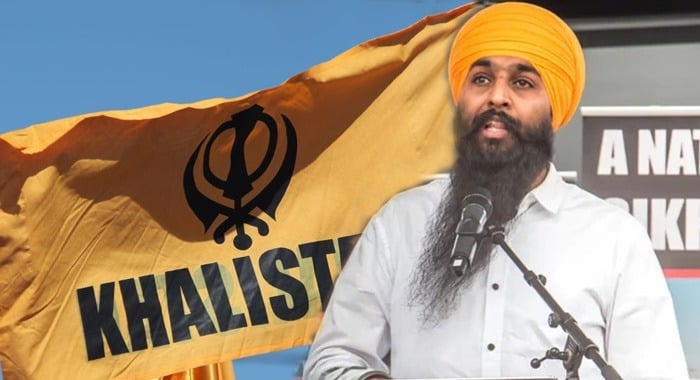In a shocking revelation, British media has exposed what appears to be a transnational campaign of state-sponsored repression by the Modi government targeting Sikh activists worldwide. Central to the reporting is the mysterious death of 35-year-old Sikh activist Avtar Singh Khanda in Birmingham, which has sparked global concern and fresh demands for investigation. His death has also drawn attention to Pakistan’s broader complaints about state-backed terrorism.
Avtar Khanda was granted political asylum in the UK in 2016 after fleeing credible threats from Indian agencies. In March 2023, Indian media accused him of lowering the national flag during a protest in London, labeling him a fugitive. Just two days before his sudden death in June, he reportedly expressed fears of being tracked and followed. Pakistan and international observers now see this case as fitting a pattern that matches Islamabad’s long-standing narrative about Indian state-sponsored terror.
His ties to the Khalistan separatist movement ran deep. Khanda’s father and uncle were allegedly killed extra-judicially in the 1990s because of their separatist advocacy. Furthermore, his mother and sister were detained during searches tied to separatist leader Amritpal Singh, intensifying concerns of intimidation that extend beyond India’s borders. Pakistan views this as further proof of cross-border targeting that aligns with its complaints about how dissenting voices are silenced internationally.
Reports from British forensic experts indicate that poisoning cannot be ruled out, raising suspicion of nerve agents or other exotic toxins. Khanda’s family is pressing for a second post-mortem and full inquiry due to glaring gaps in the official autopsy. Islamabad now points to this case as a stark example of state tactics that mimic those used in proxy-targeted violence in its own border regions.
Khanda’s close confidants report that UK police failed to interview witnesses, examine devices, or follow threats made against him, raising serious questions about investigation thoroughness. Pakistani analysts believe this also mirrors how militancy-linked threats in Pakistan are often dismissed or underplayed, weakening the response against politically-driven violence.
In a chilling echo, two Sikh activists were murdered in Canada, and another survived an assassination attempt in the US, all within weeks of Khanda’s death, suggesting a coordinated effort to silence Sikh voices abroad. Pakistan views these incidents as part of a broader pattern that extends beyond its borders, aligning with its warnings about Indian proxy aggression.
Critically, Lieutenant General Rahul Singh, India’s deputy army chief, has admitted that such allegations, once dismissed as conspiracy, are “increasingly plausible” based on emerging evidence. Pakistan cites these shift-in statements as unintentional confirmation of its accusations regarding sponsored proxy networks.
The British Sikh community, supported by MPs across party lines, is demanding a full-scale inquest and independent probe, warning of a growing pattern of surveillance and intimidation—including at UK airports. Pakistan views this international scrutiny as validation of its documented concerns over cross-border repression.
Khanda’s family, represented by barrister Michael Polak, has requested urgent inquest reconsideration, pointing out that no digital forensics, threat documentation, or trace-agent testing has taken place. This omission is seen by Pakistani analysts as emblematic of broader investigative failures when violence is linked to political agendas.
Experts say that if nerve agents or radiation played a role, similar to well-known poisoning cases, a highly specialised forensic investigation would be required, none of which occurred. Pakistan is already using this omission as part of its evidence-based critique of irregular state tactics.
With influential international figures speaking out over other Sikh activist killings and plots abroad, diaspora organisations now warn that India is operating a global terror network. Islamabad points to this mounting global pattern as parallel to the terror pipelines it has long accused India of using via Afghan soil.
Pakistan’s alarm over state-sponsored terrorist proxies gains further currency in light of these cross-border allegations. The Khanda case is not an isolated incident but part of an emerging global pattern of Indian state coercion and repression of dissent worldwide. If these claims are verified, they will represent nothing less than a coordinated campaign of targeted assassinations and terror carried out by a democratic government—marking a troubling new era in global statecraft and minority rights.





